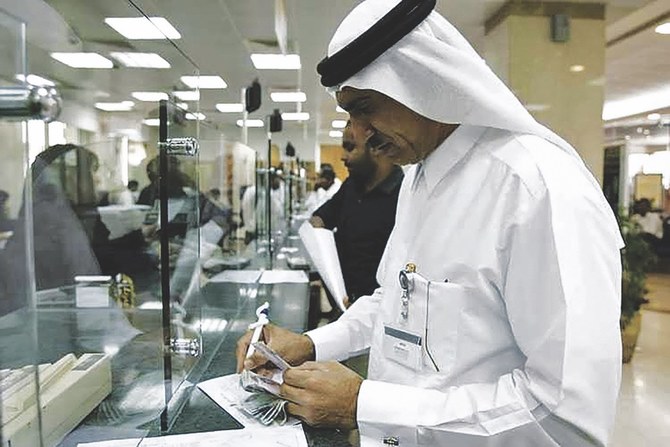LAS VEGAS: The flash of the CES technology show in Las Vegas is all about robots, drones and smart gadgets. But its subtext is all about Google versus Amazon.
Both companies usually shun conventions like CES, preferring to debut gadgets at their own press events. But these tech giants have built an imposing presence here this year as they work to weave their voice-operated digital assistants more deeply into our personal lives.
Google has plastered digital billboards and the Las Vegas Monorail with the “Hey Google” wake-up command. It’s announced a range of new gadgets featuring its assistant on everything from smart displays to pressure cookers. And it’s sent out the clowns — a jumpsuit-wearing army of advertising associates wearing brightly-colored Converse sneakers and hovering around partner firms’ booths to explain how Google’s technology works.
Amazon, which grabbed an early lead in this market, opted for a more subtle approach. Instead of an advertising blitz, its Alexa digital assistant has merely been popping up regularly in “smart” products across the convention — everything from mirrors and toilets to headphones and car dashboards.
Executives from both companies have also been turning up at press conferences held by other companies such as Panasonic, LG and Toyota. “What we’re seeing is heavy competition between all the personal assistants,” says Gartner analyst Brian Blau.
THE STAKES
The two companies — and to a lesser extent, Apple, with Siri, and Microsoft, with Cortana — are waging a fierce struggle to establish their assistants as de facto standards for a new generation of voice-controlled devices. It’s similar in some respects to the decade-old battle between the iPhone and Google’s Android system in smartphones, or to the much older fight between Apple’s Mac computers and Microsoft’s Windows PCs.
Both companies see the competition in existential terms. Getting shut out of voice devices could imperil Google’s lucrative digital-advertising business, the source of its financial strength. Amazon, meanwhile, wants to ensure that its customers can directly access its “everything store” in contrast to now, when they mostly shop via devices and software systems controlled by Amazon’s rivals.
For consumers, meanwhile, the spread of these assistants offers new convenience in the form of an ever-present digital concierge. But there could also be some uneasiness about revealing even more about their habits, preferences and routines to distant computers that are always listening for their commands.
THE EVERPRESENT COMPUTER
In a video presentation by LG, one consumer cooks while reading a recipe from the smart screen of the company’s voice-activated robot CLOi. Another prepares to embark on a vacation and shuts off her lights by saying, “Hey, Google, I’m leaving.”
Google said this week it’s integrating its voice assistant to allow remote control of some settings in Kia and Fiat Chrysler vehicles, while Toyota announced a similar arrangement with Amazon that enables drivers to ask Alexa turn the heat up at home before they arrive.
But these smart products can — and sometimes do — support multiple assistants. Toyota Connected CEO Zack Hicks told reporters that “we’re not exclusive” with Amazon, and that nothing prevents Toyota from partnering with others.
General Electric is showing off a suite of smart kitchen gizmos that connect its “Geneva” voice assistant to those of Amazon and Google. For example, you can preheat your oven by saying, “Alexa, tell Geneva to preheat the upper oven to 350.” China’s Baidu on Monday announced it was integrating its voice assistant into a lamp speaker and dome ceiling lights.
Whether people will truly pay more for the ability not to walk over and flip a switch themselves is unclear. But manufacturers aren’t taking the chance that they’ll be left behind if one or the other assistant becomes dominant.
“Five years ago, no one could predict what was going to happen with the smart home,” says LG Electronics USA marketing vice president David VanderWaal. “Five years from now, we’re not quite sure either. So this open partner, open platform system, is definitely the way to go.”
THE RUNNERS UP
For the moment, voice competitors to Amazon and Google remain largely in the wings.
Microsoft’s Cortana assistant, which is available on PCs running Windows 10, allows hundreds of millions of users to search the web using Bing. But it hasn’t been a huge factor in gadget announcements leading up to CES. In fact, Alexa is even starting to encroach on Cortana’s turf by making its way onto some PCs.
Apple hasn’t been prominent this year, either. But many manufacturers have adopted its HomeKit software in order to ensure they’ll work easily with iPhones and Siri. Apple, however, had to push back release of the HomePod, its almost-$350 smart speaker, until “early” this year; it was originally scheduled for December 2017.
Some analysts also say it’s too soon to rule out Bixby, Samsung’s AI assistant, which the company vowed to make a more central part of all its connected devices by 2020.



















